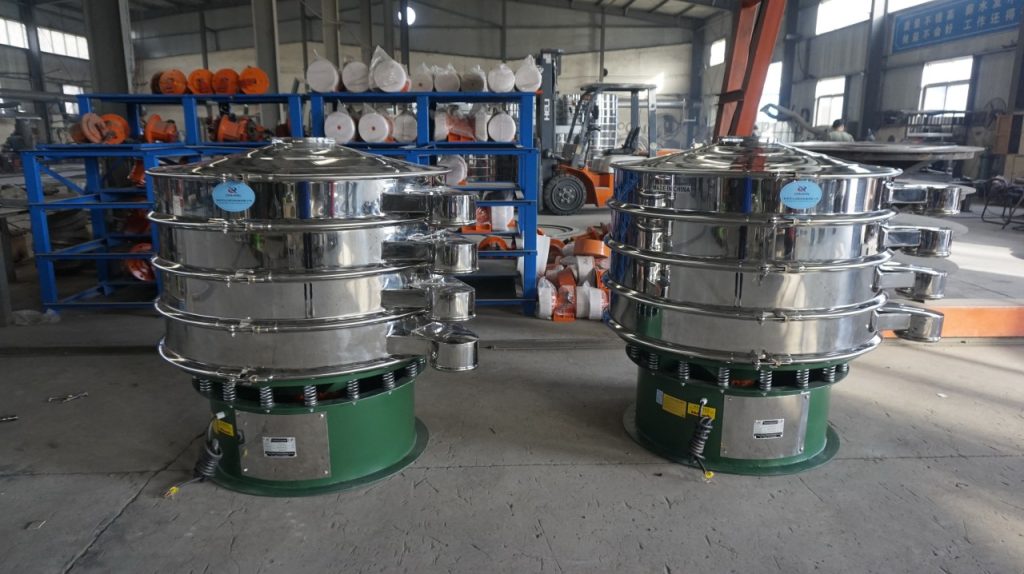In the fast-paced world of modern manufacturing, efficiency and precision are paramount. One critical element that significantly impacts the quality and consistency of manufactured products is the sieving process. Industrial sieving machines have become indispensable in various sectors, including food production, pharmaceuticals, and chemical manufacturing.
These machines are designed to separate materials based on size, ensuring that only the desired particle sizes are used in production. In this article, we will explore the importance of industrial sieving machines, their types, applications, and the technological advancements that have transformed their role in modern manufacturing.
Understanding Industrial Sieving Machines
Industrial sieving machines, also known as screeners, separators, or classifiers, are used to filter and classify bulk materials by size. They function by allowing smaller particles to pass through a mesh or screen while retaining larger particles. This process is crucial in ensuring that the final product meets specific quality and safety standards. Sieving machines come in various designs and configurations, including vibrating screeners, rotary screeners, and centrifugal separators. Each design serves different industries and applications, adapting to the unique requirements of the materials being processed.
Types of Sieving Machines
The market offers a range of industrial sieving machines, each tailored for specific applications. Vibrating screeners utilize a motor to create vibrations that help separate materials effectively. They are widely used in the food and pharmaceutical industries, where hygiene and precision are critical.
Rotary screeners, on the other hand, operate through a rotating drum, filtering materials as they move through the system. This type of screener is commonly employed in the recycling and mining industries. Centrifugal separators use centrifugal forces to separate materials based on density, making them ideal for fine powders and slurry processing. Understanding the different types of sieving machines enables manufacturers to choose the right equipment for their production needs.
Applications in Various Industries
The applications of industrial sieving machines are vast and diverse. In the food industry, sieving is crucial for ensuring the quality of ingredients such as flour, sugar, and spices. For instance, flour mills utilize sieving machines to remove impurities and achieve a consistent particle size, which directly affects the quality of baked goods.
In the pharmaceutical sector, precise sieving is essential for ensuring that active ingredients are uniformly mixed and dosed. Moreover, in the chemical manufacturing industry, sieving machines play a vital role in producing powders and granules that meet stringent specifications. The ability to sieve materials effectively enhances product quality and minimizes waste, leading to increased efficiency in manufacturing processes.
Technological Advancements in Sieving Machines
Recent technological advancements have transformed the capabilities of industrial sieving machines. Automation and digitalization have significantly improved the efficiency of sieving processes. Many modern machines are equipped with sensors and control systems that monitor the sieving process in real-time, allowing for adjustments to be made on the fly.
This not only enhances precision but also reduces downtime caused by manual interventions. Additionally, advancements in materials technology have led to the development of more durable and lightweight screens that can handle a wider range of materials and conditions. Furthermore, the integration of IoT (Internet of Things) technology enables remote monitoring and control, providing manufacturers with valuable data for optimizing their processes.
Quality Control and Compliance
In today’s manufacturing landscape, quality control is more critical than ever. Industrial sieving machines play a vital role in maintaining product quality and meeting regulatory standards. By ensuring that materials are appropriately sized and free from contaminants, sieving machines help manufacturers comply with industry regulations, such as those set by the FDA for food and pharmaceutical products.
Regular testing and maintenance of sieving equipment are essential to ensure they operate effectively and provide consistent results. Manufacturers can implement quality control protocols that include routine checks of the sieving process, ensuring that any deviations are promptly addressed to maintain product integrity.
Cost Efficiency and Sustainability
Investing in industrial sieving machines can lead to significant cost savings for manufacturers. By optimizing the sieving process, companies can reduce material waste, minimize downtime, and enhance overall production efficiency. For example, by accurately separating the desired particle sizes, manufacturers can avoid the costs associated with reprocessing or discarding non-conforming materials.
Additionally, modern sieving machines are designed with energy efficiency in mind, contributing to lower operational costs. Sustainability is also a growing concern in manufacturing, and efficient sieving processes contribute to reducing a company’s environmental footprint by minimizing waste and energy consumption.
Future Trends in Sieving Technology
As manufacturing continues to evolve, the role of industrial sieving machines is expected to expand further. Future trends indicate a growing emphasis on automation and integration with advanced manufacturing processes. The adoption of AI and machine learning algorithms will enable sieving machines to adapt dynamically to changing materials and conditions, enhancing their efficiency and reliability.
Additionally, the development of smart sieving machines that can self-diagnose issues and predict maintenance needs will further streamline operations. Furthermore, the focus on sustainability will drive innovation in sieving technology, leading to the creation of more eco-friendly materials and processes that reduce waste and energy consumption.
Conclusion
In conclusion, industrial sieving machines play a pivotal role in modern manufacturing processes by ensuring product quality, enhancing efficiency, and supporting compliance with industry standards. With various types of machines available, manufacturers can select the most suitable equipment for their specific applications. Technological advancements continue to reshape the sieving landscape, enabling greater precision and automation. As industries strive for improved efficiency and sustainability, the importance of industrial sieving machines will only grow. As we look to the future, embracing innovation in sieving technology will be crucial for manufacturers aiming to succeed in an increasingly competitive market.

